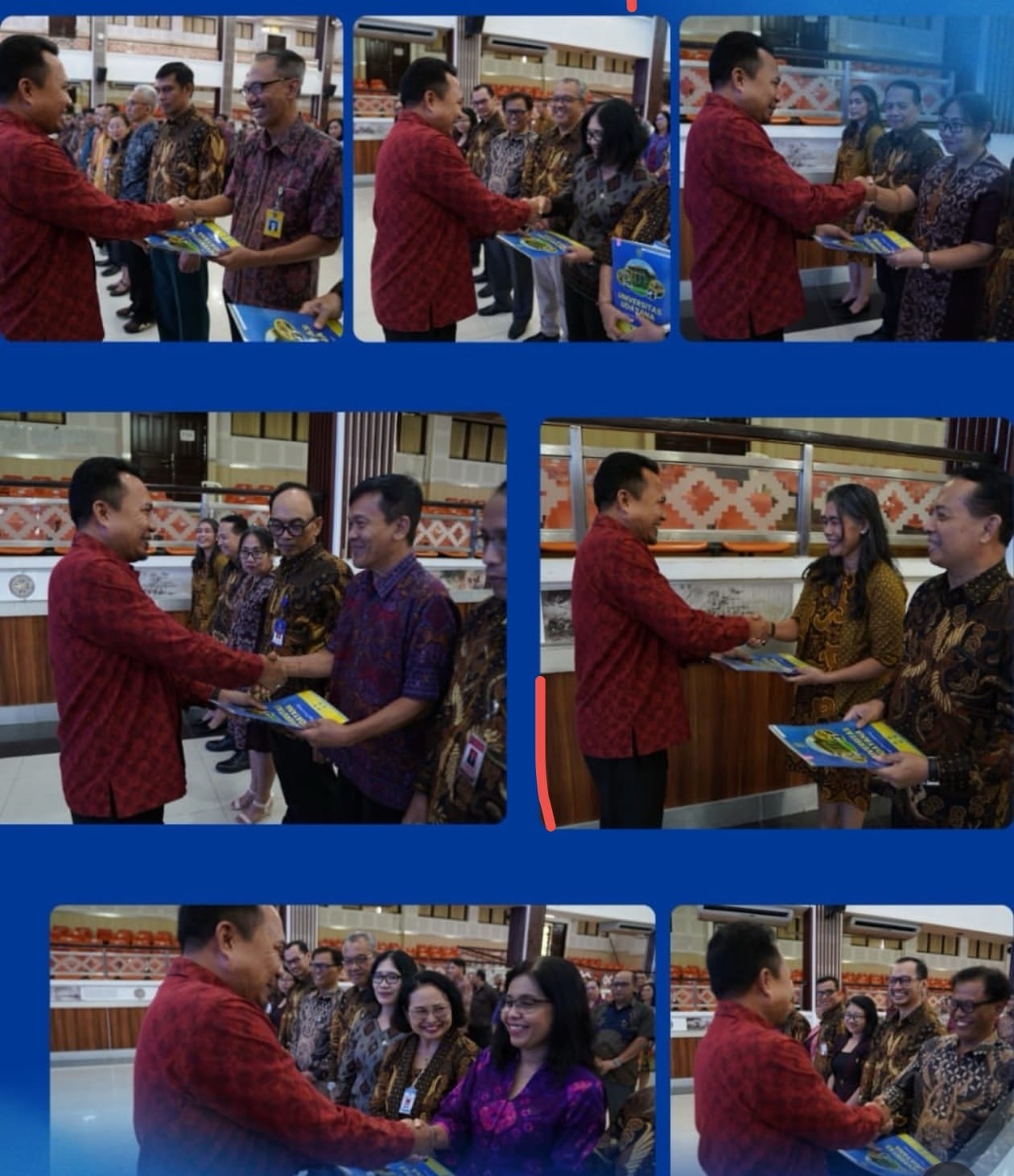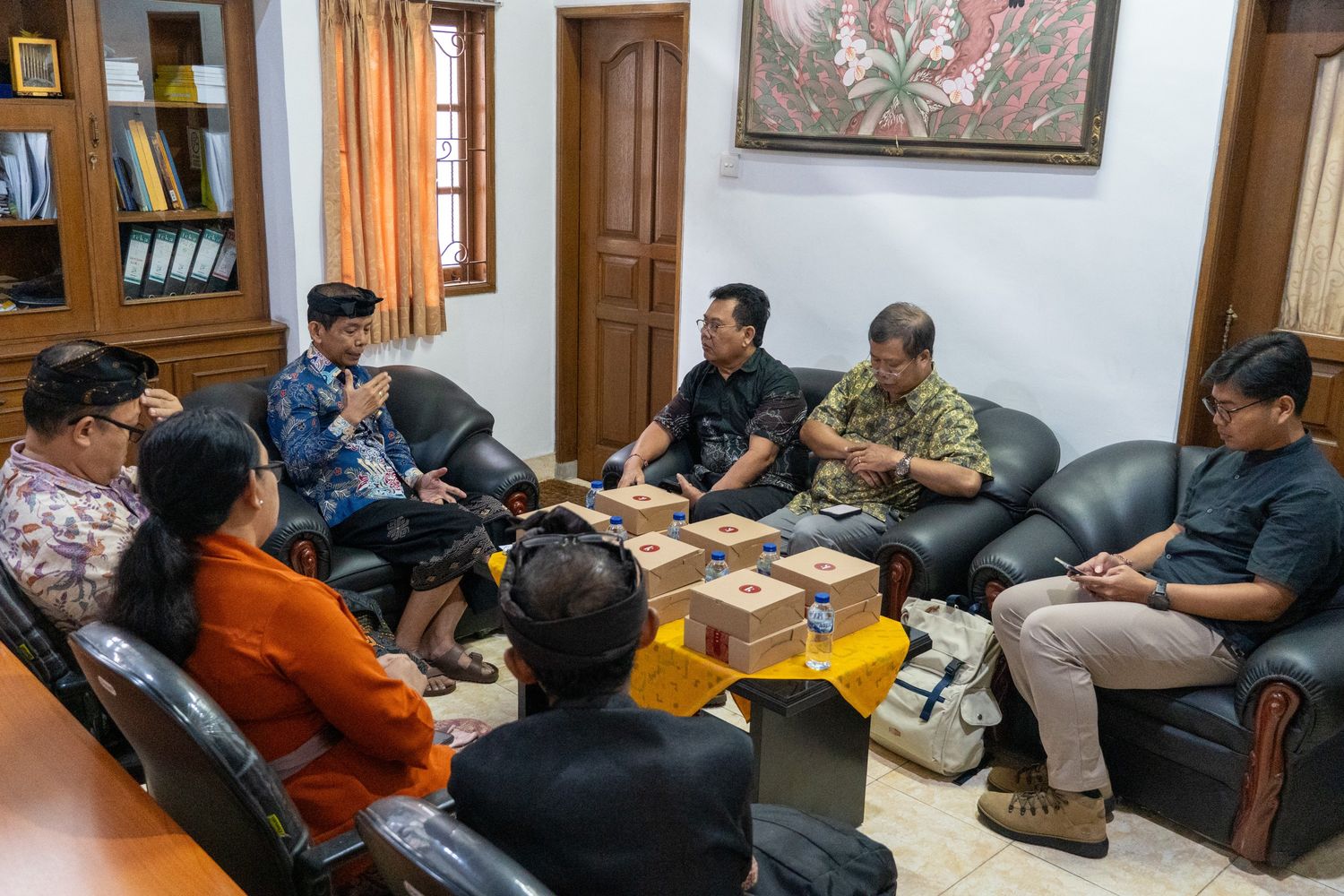The Faculty of Humanities, Udayana University, held a Disaster Management Training with the Regional Disaster Management Agency (BPBD)
- Posted by: Admin
- Jumat, 22 Agustus 2025
- Has been read 173 time(s)
The Faculty of Humanities, Udayana University, conducted a Disaster Management Training on Friday, August 22, 2025. The training took place in the Widya Sabha Mandala Auditorium on the 4th floor of the Faculty of Humanities, Udayana University. The training was attended by the Dean of the Faculty of Humanities, Udayana University, Prof. I Nyoman Aryawibawa, S.S., M.A., Ph.D.; Prof. Dr. Dra. Ni Ketut Ratna Erawati, M.Hum., Vice Dean II for General Affairs and Finance; Study Program Coordinators, lecturers, unit heads, staff, and student representatives from the Faculty of Humanities, Udayana University. The event also featured two speakers: Dr. Silvia Damayanti, S.S., M.Hum. (Lecturer at the Faculty of Humanities, Udayana University) and Chassario Maraden, S.Kom (from the Regional Disaster Management Agency).
The training opened with remarks from the Dean of the Faculty of Humanities. In his remarks, he touched on his experience with disaster management drills at several other universities, such as the University of Sydney. He noted that the university has a robust disaster management training system, with regular drills well-attended by the campus community and decentralized gathering points. Similar practices can be found at several universities in the United States. These universities can certainly serve as benchmarks for Udayana University, particularly the Faculty of Humanities, to develop a more systematic and focused disaster management training system.
This training presented two topics, along with a series of simulations. Dr. Silvia Damayanti, S.S., M.Hum., a lecturer in the Japanese Literature Study Program at Udayana University's Faculty of Humanities, presented the first topic of disaster management, based on her research on disaster education in Japanese children's literature. Indonesia, which is located on three tectonic plates, makes earthquakes and volcanic eruptions common disasters. Tsunamis are also inevitable, given Indonesia's archipelagic state. Even though the Faculty of Humanities at Udayana University, while not directly affected by the tsunami, it is still located at a location with the potential for earthquakes.
Continuing this topic, the presenter also explained earthquake prevention and response tips. She explained that overhead objects and large and tall furniture can be secured using brackets, metal hooks, or strong ropes. When a disaster occurs, the speaker outlined the steps to take, stay calm, stay away from glass and dangerous objects, take cover under a table in the monkey pose by holding the table leg, take cover in the frog pose to remain alert to the surrounding environment, and take cover in the raccoon pose in the event of a fire. After an earthquake, the evacuation process is carried out in four steps: do not push each other, do not run, do not talk, and do not turn back. Meanwhile, in the case of a multi-story building, the speaker recommended using the stairs instead of the elevator.
The speaker also explained earthquake disaster mitigation, which he hopes will be implemented at the Faculty of Humanities, Udayana University. Regarding structural mitigation, he stated that earthquake-resistant buildings should be constructed if reconstruction is necessary. Furthermore, evacuation routes need to be widely disseminated on campus. He also mentioned the need for emergency exits and stairs, given the multi-story nature of the Faculty of Cultural Sciences, Udayana University. He also mentioned the provision of disabled ramps. Furthermore, the function of assembly points also needs to be optimized. Touching on non-structural mitigation, the speaker suggested establishing campus standard operating procedures (SOPs) for disaster management, outreach, and a disaster-safe campus.
The second presentation was presented by Chassario Maraden, S.Kom., from the Regional Disaster Management Agency (BPBD). The speaker began the session by explaining the background to the establishment of the Regional Disaster Management Agency. Regarding disasters, he also revealed that the majority of disasters occurring in Bali Province are hydrometeorological in nature, such as droughts, extreme weather, and others. This situation is also inextricably linked to climate change. Therefore, the speaker also reminded that climate change has already occurred, and it is appropriate to adapt to it.
He stated that disasters are a shared responsibility. Several activities are involved in risk-based disaster management, including Disaster Preparedness Certification (tourism), Destana (villages), SPAB (schools), and Disaster Preparedness Campuses (Campuses). The Bali Provincial Government has collaborated with LLDIKTI (Indonesian Institute of Higher Education), with the hope that LLDIKTI campuses will initiate the establishment of Disaster Preparedness Campuses. He believes that collaborative collaboration between campuses is crucial. "Pre-prevention is not only carried out by the Regional Disaster Management Agency (BPBD), but is carried out by all parties," he explained. There are four components to this: DRR policy, improving knowledge, attitudes, and skills in DRR, resource mobilization, and partnerships.
The activity then continued with an earthquake and fire simulation. The BPBD guided the simulation by providing a live demonstration of earthquake response while guiding participants away from the "earthquake location." The simulation also involved participants playing out the roles and tasks they would perform in a similar situation. Meanwhile, the firefighting simulation began with an explanation of fire prevention both on campus and in everyday life. Before the practice began, the Regional Disaster Management Agency (BPBD) explained the proper use of a portable fire extinguisher (APAR). The simulation included hands-on practice of extinguishing a fire using an APAR and a high-pressure cleaner, which also concluded the training.



UDAYANA UNIVERSITY